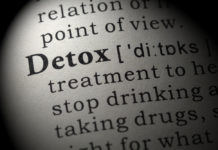word of mouth, Arria said. “I think what happens is the one time that a student uses prescription stimulants non-medically feels like they aced the test, they will spread the news of that unusual event, and that sort of becomes the mythology associated with the use of these drugs.”
The researchers added that college personnel and parents of students should also be emboldened to implement interventions that dismantle the belief that NPS can help in school and to also increase awareness about the associated health risks.
“We have actually suggested to academic advisors to find out what’s behind those academic struggles, and that includes a complete assessment,” she said. “So when they encounter a student who talks about their substance use, and especially their non-medical use of prescription stimulants to maybe get ahead, there needs to be a counterpoint to that by a professional to say that’s not going to help you improve.”
The study noted that NPS is also linked to other substance use, however, it can add as a “red flag” for parents, educators and healthcare physicians in impeding further drug abuse. Physicians who prescribe medications to college students can reduce misuse by informing their patients that sharing or selling their prescription stimulants is illegal, and their friends’ unauthorized use would also be considered unlawful.
“We would really suggest that parents become more aware that this is a red flag for other substance use the [student] may not be disclosing to their parents,” Arria said. “If they find out that their son or daughter is engaging in the non-medical use of prescription stimulants, there’s a high chance that they are doing other things that may derail their academic performance.”
The researchers also concluded that college is a prime opportunity to redirect students’ misguided beliefs regarding the benefits of NPS while also raising awareness of the legal repercussions and health-associated risks of NPS.
“Young adulthood is probably the most opportune time, and that is because a lot of health habits aren’t entrenched yet. You’re still in a state of flux as a young adult,” Arria said. “You’ve got an opportunity to shape the trajectory of that young person.”















